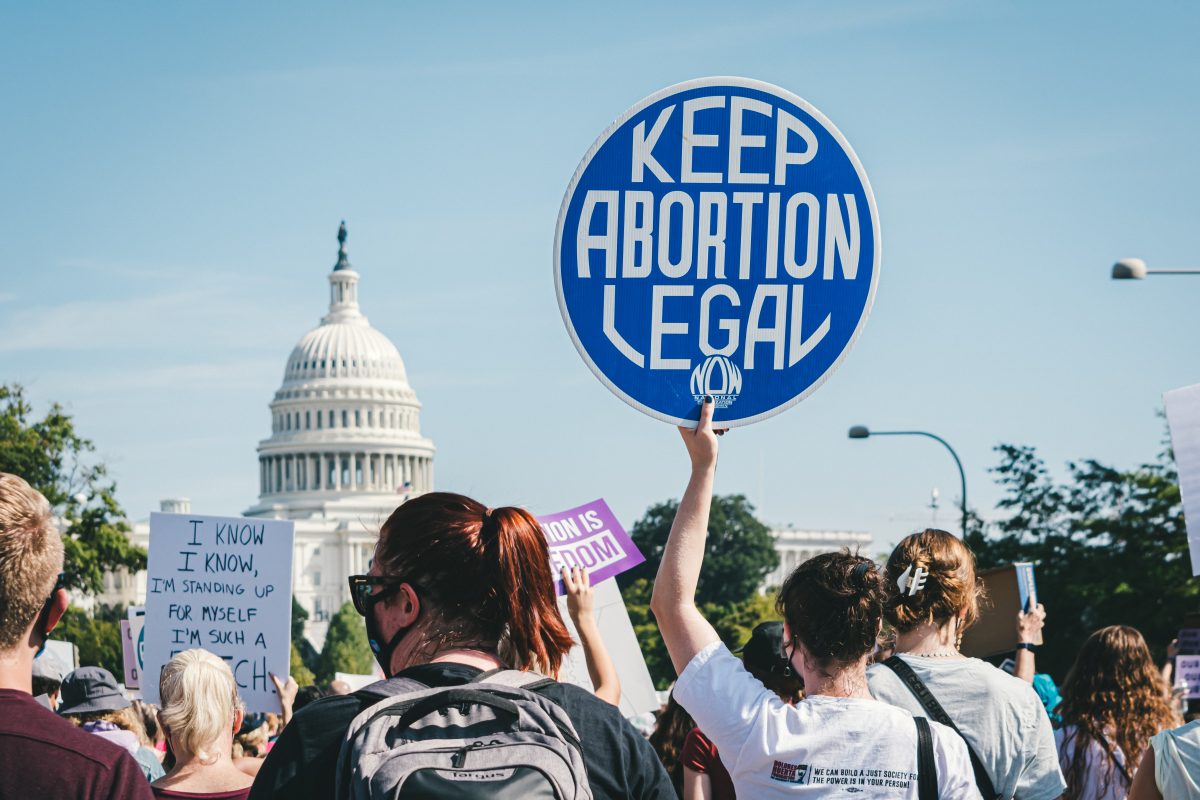The end of safe and legal abortion is likely here said the leader of Planned Parenthood of Tennessee and North Mississippi (PPTNM) on Monday, but the agency is already working on its next steps.
The declaration came after news of the U.S. Supreme Court draft opinion on Roe vs. Wade surfaced late Sunday. The draft opinion from Justice Samuel Alito began circulating in the court in February but was leaked to Politico only recently. The draft opinion would end federal protections for abortions nationwide and give the decision to states.
“We know the harm that will come from this decision,” said PPTNM CEO Ashley Cofield in a Monday news conference.
Should the court overturn the decision, it would trigger a Tennessee law that would ban abortions in the state within 30 days, Cofield said. The decision would likely also lift a temporary injunction on a law passed here (but now blocked by a judge) outlawing abortions after six weeks.
While Cofield painted a grim reality of a future most pro-choice citizens have dreaded, she vowed PPTNM would continue its work.
“First and foremost, abortion is legal today in Tennessee and our doors remain open,” Cofield said during a Monday press conference. “We will continue to provide abortion care up to the very minute when we no longer can do so.”
But Cofield said her agency has been preparing for this outcome since 2019, when the Tennessee General Assembly passed the 30-day trigger ban. PPTNM is hiring and training patient navigators, to help those they serve get access to legal abortions outside of Tennessee and Mississippi. These navigators will help patients remove financial and transportation barriers to finding legal abortions.
Should the decision be overturned, Cofield said Tennessee residents in Memphis and Nashville could find access to an abortion in Illinois. Those in East Tennessee, while some political unknowns now exist, could find abortion access in North Carolina, Virginia, and, perhaps, Florida.
PPTNM is also now considering offering emergency contraceptives, like Plan B, to its patients for free.
Cofield said the impact would be felt hard in Shelby County. Many abortions are provided here, she said, because the county is served by her agency as well as Choices – Memphis Center for Reproductive Health. Also, many patients travel to Shelby County from other parts of the state and the region for care.
“We know, also, that it will mostly impact Black, Latino, and other people of color who already disproportionately feel the effects of abortion bans and restrictions, a product of this country’s legacy of racism and discrimination,” Cofield said.
In Tennessee, 51 percent of women getting an abortion in 2019 were Black, according to data from the Kaiser Family Foundation. Of the remaining women 39 percent were white, 6 percent were Hispanic, and 4 percent were of another race.
The Planned Parenthood Action Fund says Blacks have a higher rate of unintended pregnancy and a higher rate of abortion than non-Hispanic whites. The underlying issues for this are linked to poverty and lack of access to pregnancy prevention services.
A Facebook post by Advocates of Planned Parenthood reads, “Let’s be clear: This is a draft opinion. It is outrageous and unprecedented, but not final. Abortion is your right and it is still legal.”
